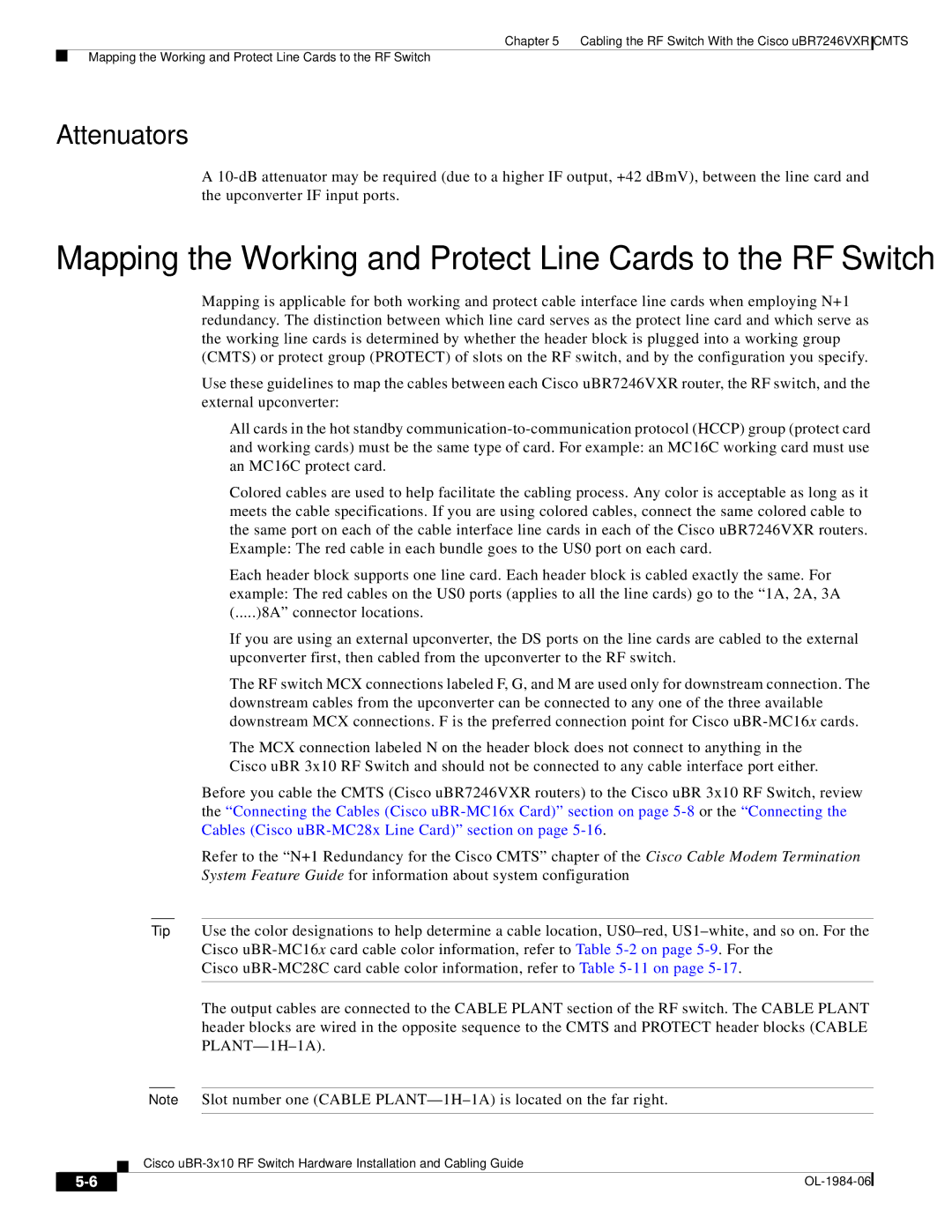
Chapter 5 Cabling the RF Switch With the Cisco uBR7246VXR CMTS
Mapping the Working and Protect Line Cards to the RF Switch
Attenuators
A
Mapping the Working and Protect Line Cards to the RF Switch
Mapping is applicable for both working and protect cable interface line cards when employing N+1 redundancy. The distinction between which line card serves as the protect line card and which serve as the working line cards is determined by whether the header block is plugged into a working group (CMTS) or protect group (PROTECT) of slots on the RF switch, and by the configuration you specify.
Use these guidelines to map the cables between each Cisco uBR7246VXR router, the RF switch, and the external upconverter:
•All cards in the hot standby
•Colored cables are used to help facilitate the cabling process. Any color is acceptable as long as it meets the cable specifications. If you are using colored cables, connect the same colored cable to the same port on each of the cable interface line cards in each of the Cisco uBR7246VXR routers. Example: The red cable in each bundle goes to the US0 port on each card.
•Each header block supports one line card. Each header block is cabled exactly the same. For example: The red cables on the US0 ports (applies to all the line cards) go to the “1A, 2A, 3A (.....)8A” connector locations.
•If you are using an external upconverter, the DS ports on the line cards are cabled to the external upconverter first, then cabled from the upconverter to the RF switch.
•The RF switch MCX connections labeled F, G, and M are used only for downstream connection. The downstream cables from the upconverter can be connected to any one of the three available downstream MCX connections. F is the preferred connection point for Cisco
•The MCX connection labeled N on the header block does not connect to anything in the Cisco uBR 3x10 RF Switch and should not be connected to any cable interface port either.
Before you cable the CMTS (Cisco uBR7246VXR routers) to the Cisco uBR 3x10 RF Switch, review the “Connecting the Cables (Cisco
Refer to the “N+1 Redundancy for the Cisco CMTS” chapter of the Cisco Cable Modem Termination System Feature Guide for information about system configuration
Tip Use the color designations to help determine a cable location,
Cisco
The output cables are connected to the CABLE PLANT section of the RF switch. The CABLE PLANT header blocks are wired in the opposite sequence to the CMTS and PROTECT header blocks (CABLE
Note Slot number one (CABLE
Cisco
|
| |
|
